"Lead with Your Arabness": 40 Minutes with Roula David
By: Layan Srour / Arab America Contributing Writer
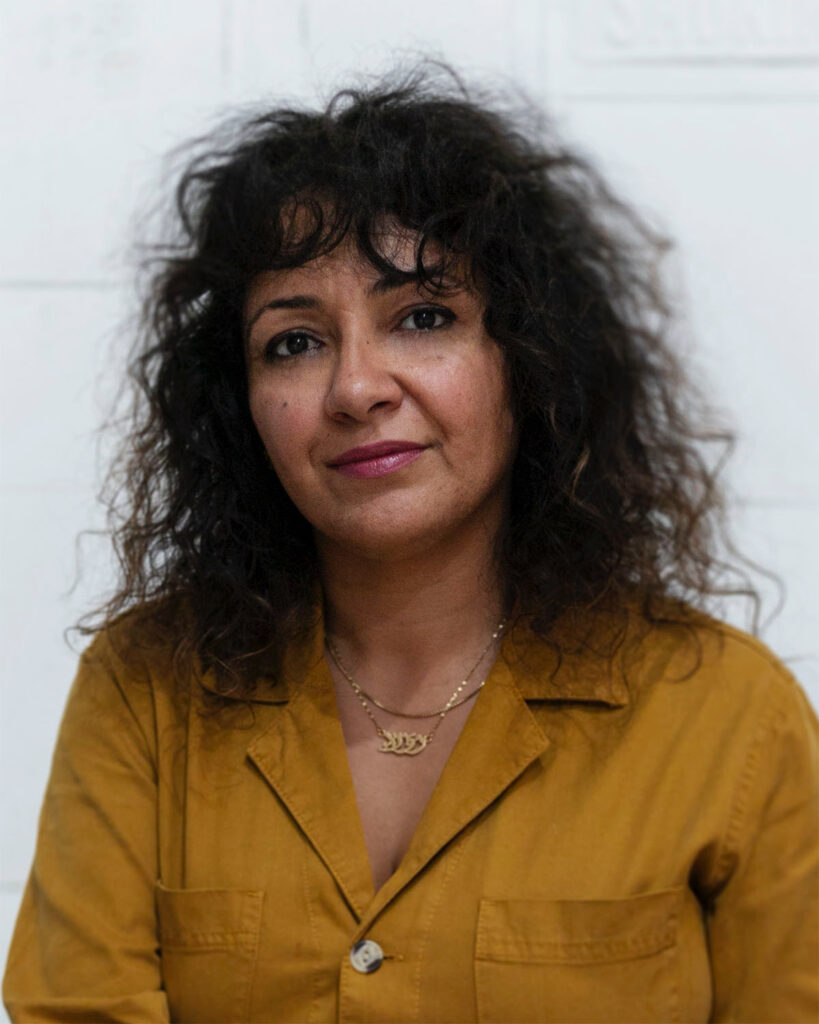
Roula David is a creative force in Detroit’s music and nightlife scene, known for her visionary leadership at Spot Lite and UFO Factory. Growing up between Arab and American cultures, she developed a deep, lifelong connection to music that spans hip-hop, house, soul, and jazz. Roula’s journey has always been about building spaces that feel both world-class and deeply personal. With Spot Lite, she’s reimagined the warmth of Jordanian hospitality and Arab home gatherings into a vibrant venue that celebrates music, art, and community—centering values, energy, and cultural identity in everything she does.
How did your early experiences with music shape the way you curate or create musical spaces today?
Music has been really important to me since I was a child. My first science fair project involved playing music to one plant and not the other to see which one thrived. Music created a deep source of connection for me, whether through my Arab roots or my American roots. When I went to Jordan, my mom let me buy a bunch of music so I could reconnect with the English language I had lost.
I’m a child of the ’90s, and toward the tail end of the decade, I got really into dance music. I initially got into hip-hop and was part of a lot of the early hip-hop scenes in Cincinnati, especially with the Scribble Jam Festival. That was the festival where Eminem was discovered, too! At the same time, hip-hop was constantly changing and influencing other kinds of music. So, I became a huge house head and got really into drum and bass, house, nu-jazz, neo-soul, and more.
Music became the work I wanted to do. When I opened my first restaurant at 25, I brought in DJs from around the world. I wanted to create world-class and underground experiences at this little place I had opened. I had a friend who worked at Red Bull Music Academy, which I was super fascinated by. They approached me for a sales position—it was basically my first corporate job. I worked there for two years in Cincinnati and then got promoted to a job in Detroit to be closer to the music.
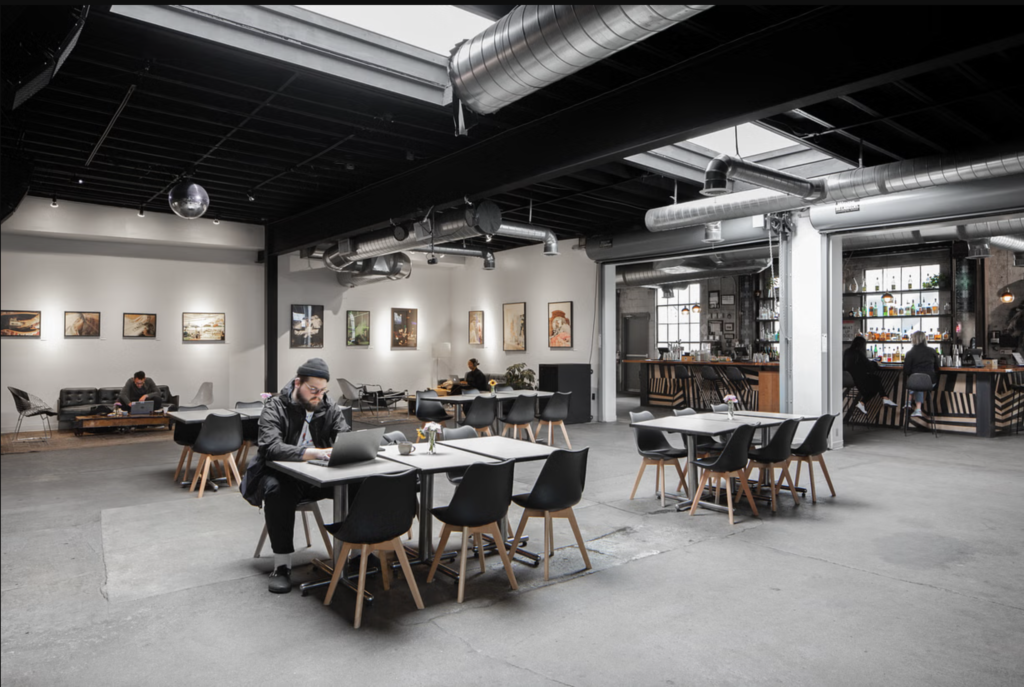
How did your personal life shape the vision and atmosphere you ultimately created at Spot Lite?
When I met my husband, Jesse Cory, I didn’t know he was a DJ and a huge vinyl collector. We spent so much of our relationship just talking and listening to records, and we eventually started collecting records together. The record wall at Spot Lite, behind the performers, is our collection, too.
We used to host a lot of people at our house in Boston Edison. We’d cook, make drinks, and party all day and all night. Our friends always wanted to come over after the bar. People loved the atmosphere we had, and that’s what inspired us to create Spot Lite. Spot Lite is a larger, reimagined version of our living room.
It’s not necessarily an Arabic space, but it leads with Jordanian hospitality. That’s a huge part of my culture and a huge part of who I am. Sometimes people walk in and say, “I know this space isn’t Arabic, but it feels Arabic, and I don’t know how.” It is Arabic—because of the energy, the hospitality, and the values.
Even though the space is literally four white walls in a warehouse, we try to fill it with warmth, plants, rugs, and music. That’s why we don’t have a stage. When you go to an Arab party at somebody’s home, they perform while everyone gathers in a circle. That’s the energy we want to bring out.
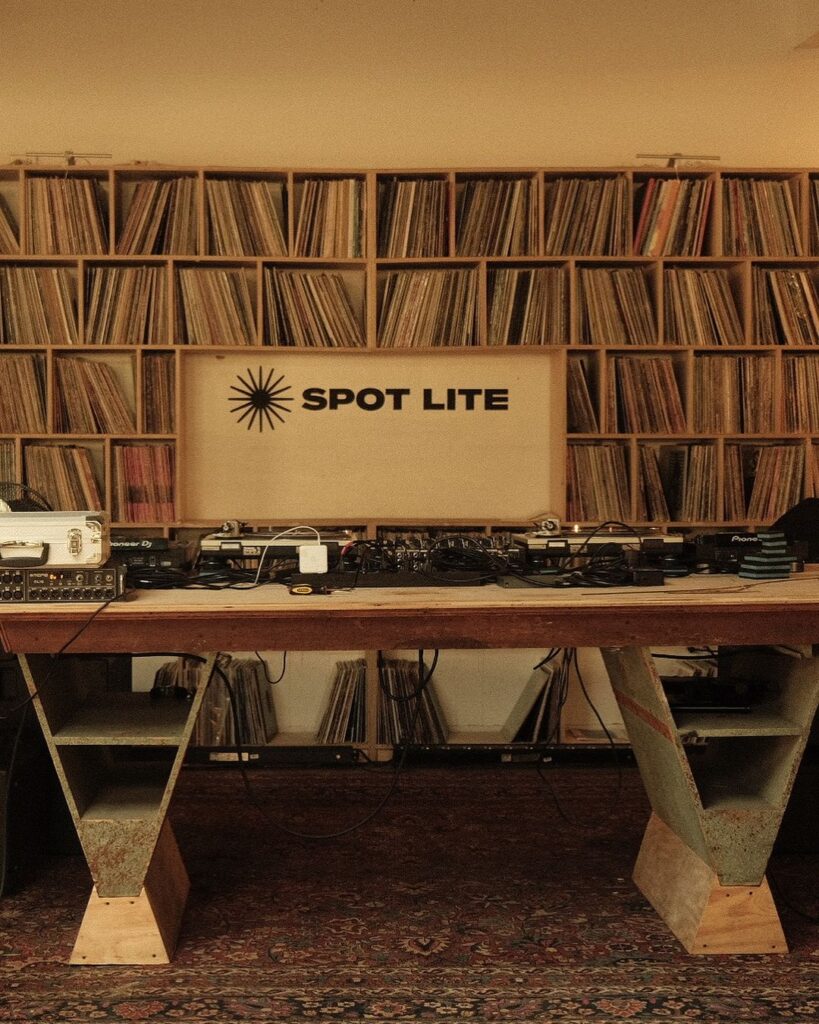
Why the name Spot Lite?
My husband found an abandoned liquor store on the west side of Detroit, and it had this huge, bright sign that said Spot Lite. Jesse said, “What if I go in the middle of the night, take the sign, and we’ll use it as our marquee?” At first, I was hesitant. But when I thought about it, I loved the idea. We spotlight our Spot Lite, our art gallery, musicians, and more. A lot of signs in Detroit are misspelled, and a lot of that comes from Arabs misspelling them. Arabs spell many things phonetically, especially when they first move here, and then they’re stuck with it.
I gave him the thumbs up to grab it, and he went the next night to get it, only to find that somebody had already taken it. By that point, we had already registered our name and our LLC. Somebody stole it, but we had made so much sense of the name that we just stuck with it. To me, it feels like Detroit. It’s like shining a light on so many communities.
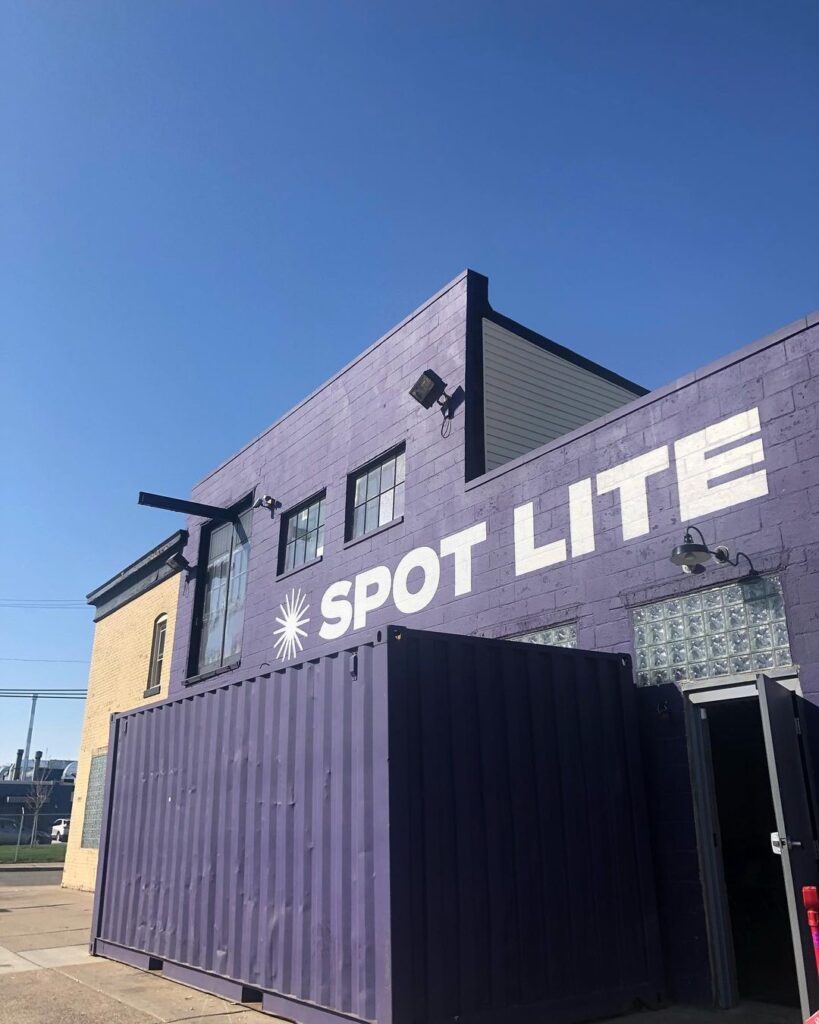
Did you face any backlash as an Arab woman?
I don’t think being Arab or an Arab woman has been a challenge for me. I think being a woman makes people question my ownership or say condescending things. Sometimes I hear things like, “An owner doesn’t look like you.” Then what does an owner look like?
In regards to the community, I built deep enough roots in the music scene that everyone is supportive. I’m very proud. We also house another independent Arab women-owned business called Cairo Coffee. Monica is amazing. The in-house record store manager is Algerian. The general manager is Lebanese. I’ve never worked with this many Arabs in my life. It’s so nice to be surrounded by like-minded people who are all passionate about the same music that I’m passionate about.
Every day, we look around at each other and feel really seen. Our staff and team take the time to learn about us and our culture. Even without me asking, the team showed up wearing keffiyehs on the first day of the war in Gaza. They’re not even Arab. I didn’t even realize that we shared the same views—it wasn’t something we discussed when they were hired. I think it’s because they understood what this space was. It’s been beautiful to watch us build this community and support each other.
How did your journey go from Spot Lite to buying UFO Bar?
Before we bought it, I’d only been there a handful of times. It was our staff’s bar—that’s where they would go after work or on their day off. Apparently, the owners of UFO wanted to pursue different things in life. It took us a significant amount of time to make the deal happen. UFO is an indie/punk rock venue, and that was unfamiliar territory for me. I had no idea what that scene looked like, unlike dance and jazz. I told the team I would get it, but at the end of the day, this is their place. Now, we still do a lot of punk, but we also host live and underground electronic music.
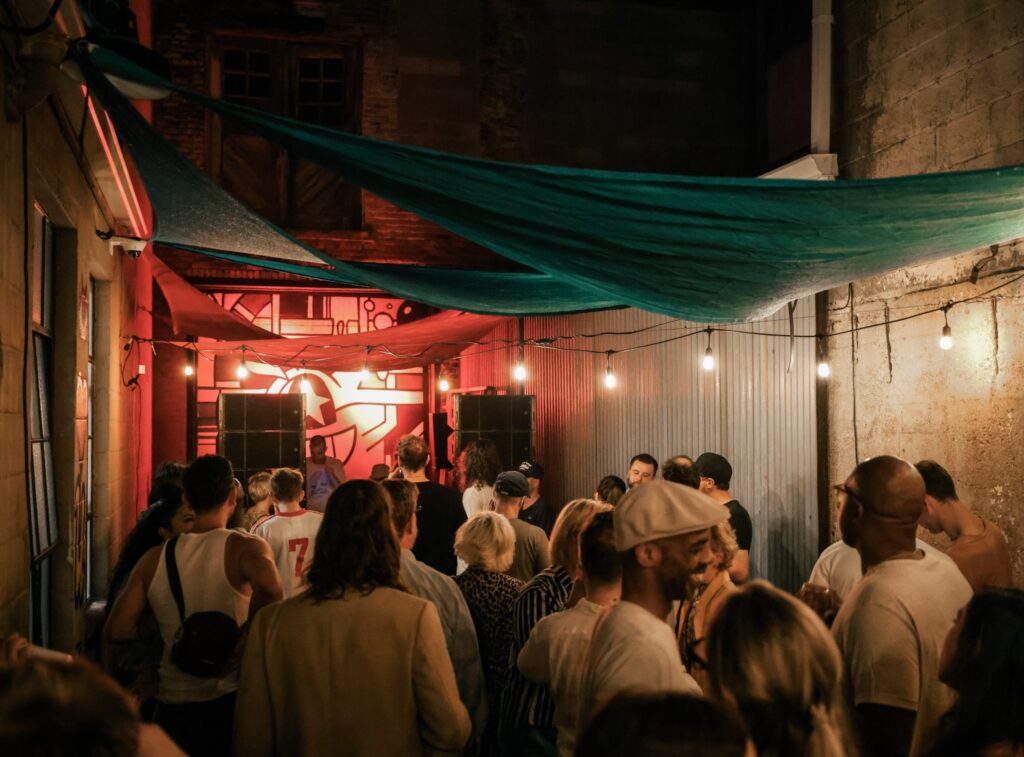
What’s one piece of advice you have for Arab Americans aspiring to enter the music and music business world?
Through Spot Lite, I realized that people needed someone to organize and create space for things to happen. Some people prefer to focus on the art side of things, some focus on the logistical side, and some can do both. My niche was to be a facilitator of creativity and to create space for it. I love it. Even before I got into Spot Lite, I always entered my work with Arabic sensibility and warmth. It’s important to lead with your Arabicness.
As a creative, enter the space confidently: I’m an Arab, I’m creative, and I can do this job from this unique perspective. Do the projects you want to do, even if people don’t know that’s what they are. Never shy away from that. I lead with being Arab. I lead with being an Arab woman in everything I do. It’s that mentality that will separate you from the rest.
About the Article and Author: Layan Srour, a Lebanese musician based in Detroit, Michigan, is passionate about blending her culture through music, research, and education in the United States. 40 Minutes With is a weekly feature where Layan interviews an Arab American musician, exploring their journey through music and culture in America. Connect with Layan on Instagram, Facebook, LinkedIn, or via email.
Want more articles like this? Sign up for our e-newsletter! Check out our blog here!








